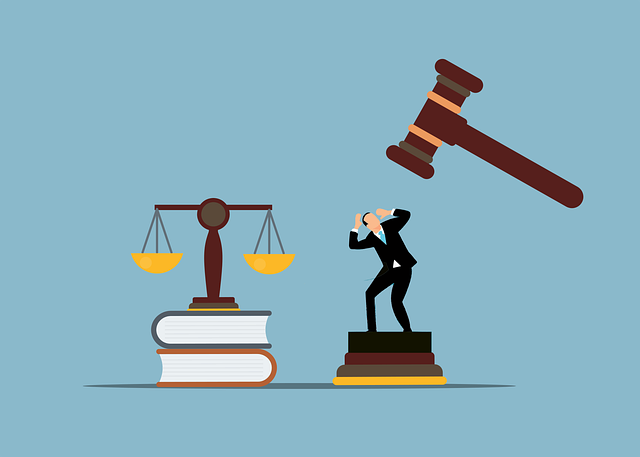Grandparent custody disputes require legal expertise to navigate state laws focusing on child's best interests and strong grandparental relationships. Specialists guide grandparents through procedures, prepare documentation, and represent cases in court. Evidence includes employment records, references, and legal documents. Courts prioritize the child's well-being, stability, and familial bonds. Post-decision, counseling, mediation, and open communication facilitate adjustments and maintain the child's best interests.
Grandparent custody disputes can be emotionally charged and complex. When family dynamics change, legal assistance becomes crucial for ensuring fair outcomes. This comprehensive guide explores grandparent custody rights, available legal options, evidence gathering, and the role of family courts. Learn how to build a strong case, navigate post-decision support, and adjust to new arrangements. Understanding your rights and the legal process is essential in resolving these sensitive disputes effectively.
- Understanding Grandparent Custody Rights and Laws
- Navigating Legal Options for Grandparents
- Building a Strong Case: Evidence and Documents
- The Role of Family Court in Custody Decisions
- Post-Decision: Support and Adjusting to New Arrangements
Understanding Grandparent Custody Rights and Laws

In many jurisdictions, grandparents have legal rights and grounds to seek custody or visitation of their grandchildren. Understanding these rights is crucial when navigating grandparent custody disputes. Laws vary across regions, but generally, grandparents can petition for custody if they can demonstrate a significant relationship with the child and that it would be in the child’s best interest to have them involved. This process often requires legal assistance to ensure the presentation of strong arguments and adherence to specific legal procedures.
When addressing grandparent custody disputes, it is essential to consult family law experts who specialize in these matters. They can guide grandparents through the legal framework, helping them understand their options, prepare necessary documentation, and represent their case effectively in court. With the right legal support, grandparents can assert their rights and fight for meaningful involvement in their grandchildren’s lives.
Navigating Legal Options for Grandparents

Navigating legal options in grandparent custody disputes can be a complex and emotional process. Grandparents seeking to gain or maintain custody of their grandchildren often face challenges, especially when the biological parents are involved. The first step is to consult with an experienced family law attorney who specializes in these matters. They can provide guidance tailored to the specific circumstances, ensuring all legal rights and options are explored.
Understanding state laws and regulations related to grandparent custody is crucial. Each jurisdiction has its own set of criteria and requirements for granting custody, which often involve demonstrating a strong parental bond, ability to provide a stable home environment, and the child’s best interests being at the forefront. Legal professionals can help grandparents craft compelling cases, gather necessary documentation, and represent them in court proceedings, aiming to reach a favorable outcome for the entire family.
Building a Strong Case: Evidence and Documents

Building a strong case for grandparent custody disputes requires meticulous gathering and presentation of evidence and documents. This includes any records that demonstrate the grandparent’s ability to provide a stable, loving, and nurturing environment for the child. Such documentation can include employment records, references from neighbors or family members who can attest to the grandparent’s character and fitness, and medical or educational reports highlighting the child’s well-being in their care.
Additionally, it’s crucial to compile any legal documents that establish the grandparent’s parental rights, such as birth certificates, adoption papers (if applicable), and court orders related to previous custody arrangements. These pieces of evidence not only strengthen the case but also help present a clear and compelling narrative to the court, emphasizing the grandparent’s legitimate claim to custody.
The Role of Family Court in Custody Decisions

In cases of grandparent custody disputes, the family court plays a pivotal role in making decisions that are in the best interest of the child. These courts have the authority to determine custody arrangements when parents are unable or unwilling to make such choices. The process involves a thorough evaluation of various factors, including the child’s well-being, stability, and relationships with potential caregivers. By examining these aspects, family court judges can render rulings that ensure the security and happiness of the minor, often facilitating a healthier dynamic among contending grandparents.
When grandparent custody disputes reach the courtroom, legal assistance becomes indispensable. Skilled attorneys specialized in family law can navigate the intricate procedures, advocate for their clients’ rights, and present compelling arguments based on state laws governing child custody. This expert guidance is crucial in ensuring that all relevant considerations are addressed, allowing grandparents to make informed decisions while adhering to judicial standards.
Post-Decision: Support and Adjusting to New Arrangements

After a legal decision regarding grandparent custody disputes has been made, the focus shifts to supporting families in adjusting to the new arrangements. This transitional phase is crucial as both grandparents and parents work together to ensure the best interests of the child are maintained. Legal assistance doesn’t end with the ruling; instead, it evolves into facilitating a smooth transition and offering ongoing support.
Counseling and mediation can play significant roles in helping families navigate this new reality. These processes encourage open communication, resolve any lingering conflicts, and foster a collaborative environment. With the right support, grandparents and parents can adapt to their new roles, ensuring stability and love for the child while respecting each other’s boundaries and rights.






